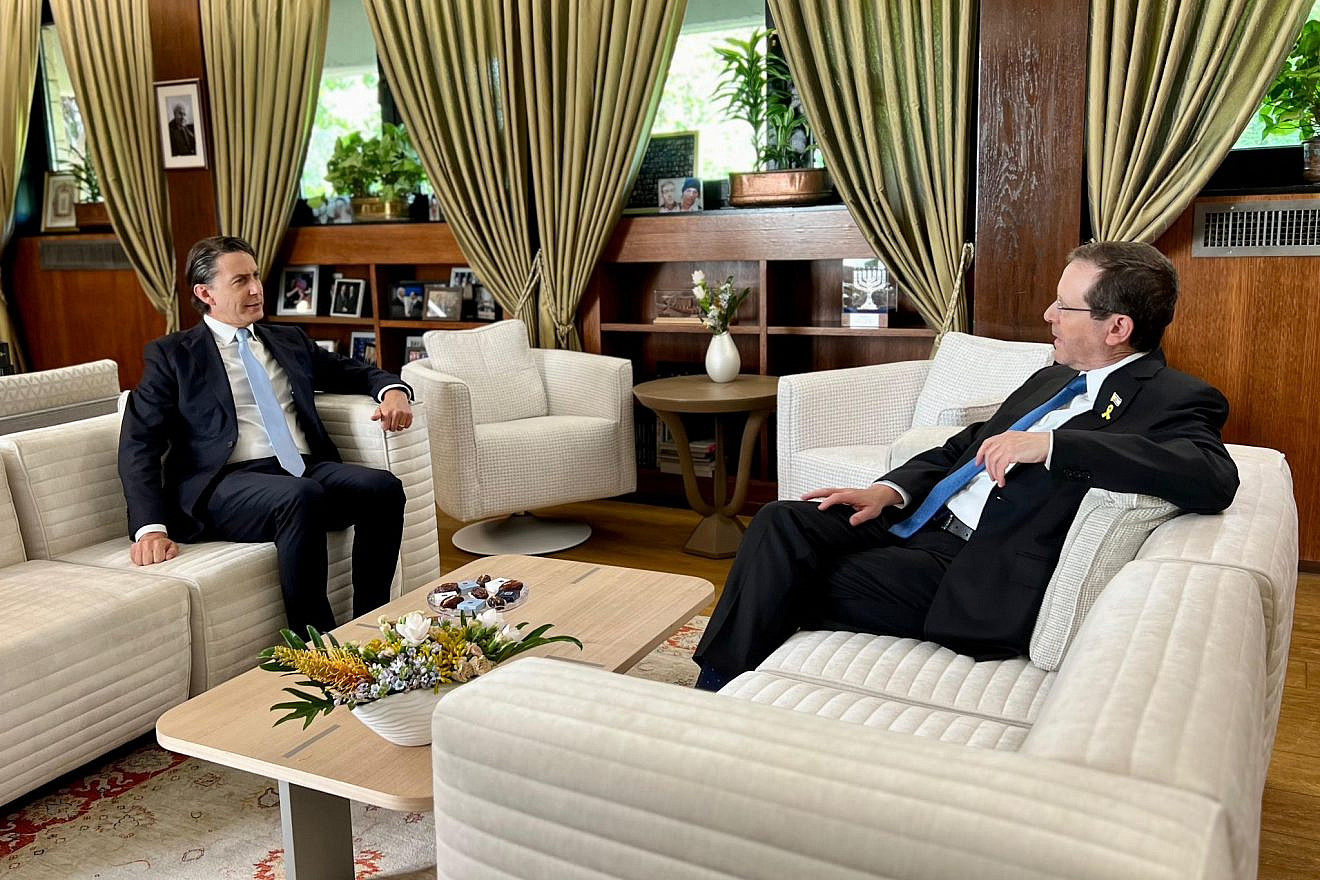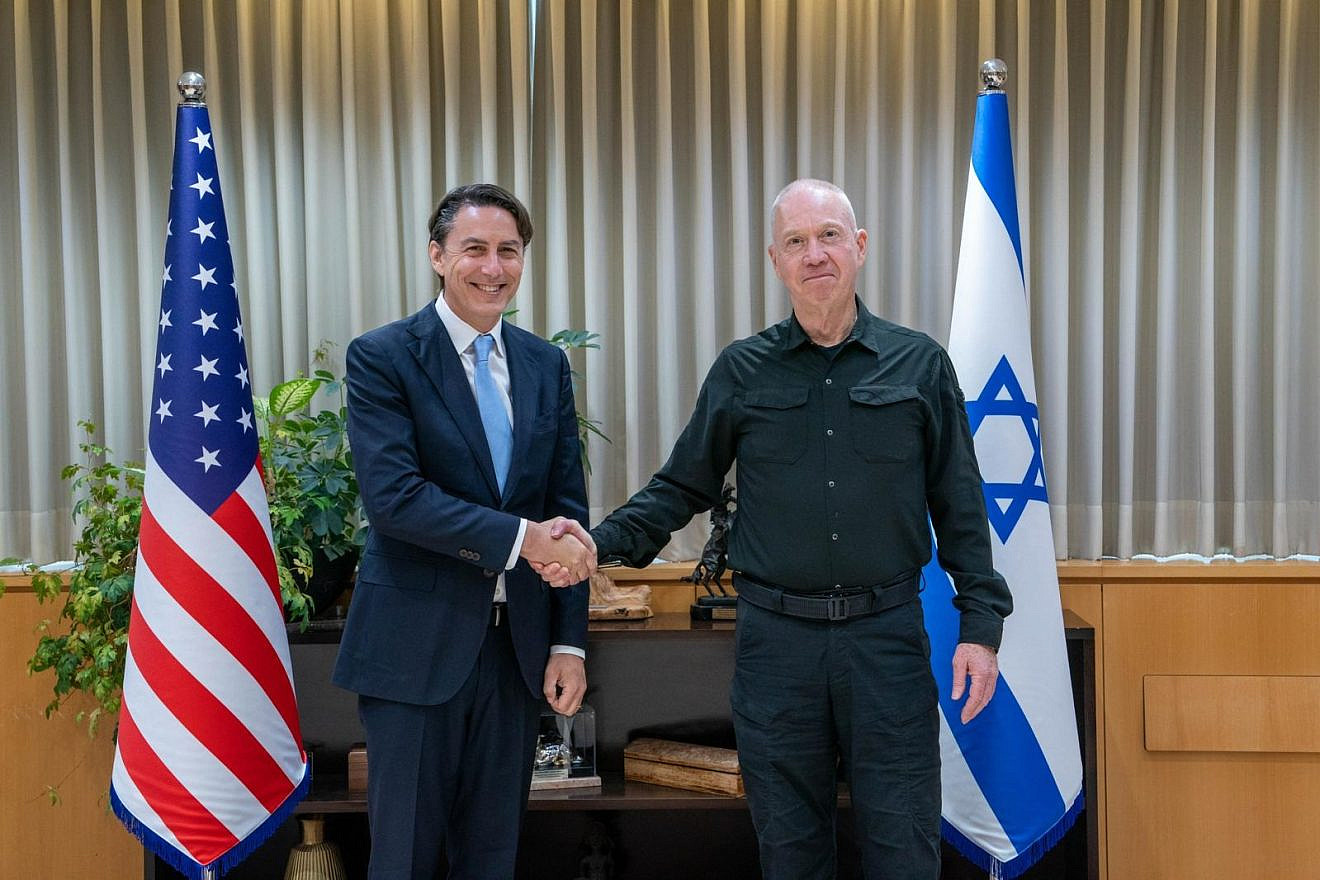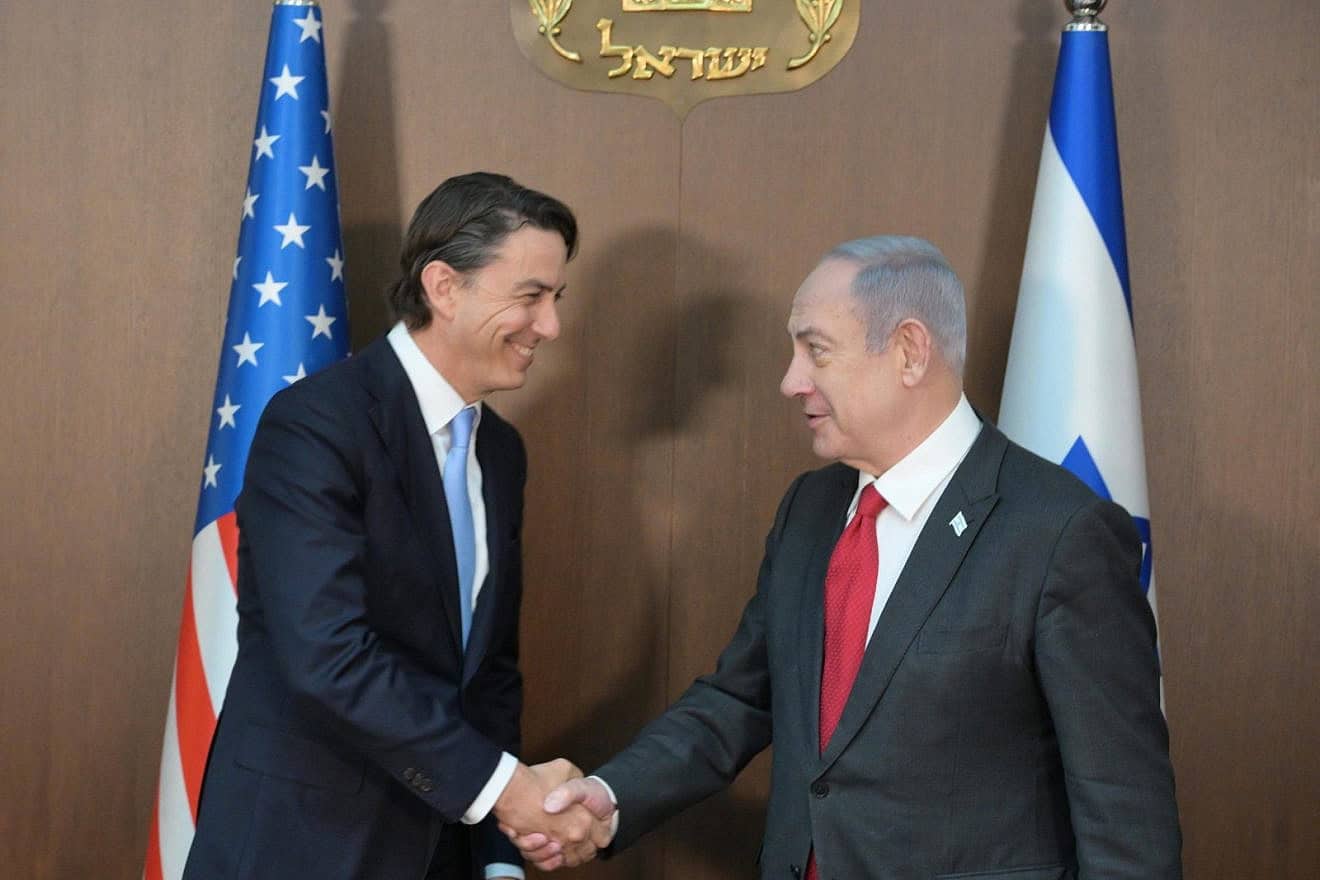Amos Hochstein, deputy assistant to the U.S. president and senior adviser for energy and investment, met with Israeli Prime Minister Benjamin Netanyahu at his office in Jerusalem on Monday as the Biden administration attempts to prevent a wider war with Hezbollah in Lebanon.
A White House official told Reuters that Hochstein was expected to discuss averting further escalation at the Blue Line, the temporary border demarcated by the U.N. in 2000, after the Israeli withdrawal from Lebanon.
Joining Hochstein and Netanyahu for the meeting were Strategic Affairs Minister Ron Dermer, the prime minister’s chief of staff Tzachi Braverman, military secretary Maj. Gen. Roman Gofman and foreign policy adviser Dr. Ophir Falk, and deputy chief of mission at the U.S. embassy in Israel Stephanie Hallett.
Hochstein said that de-escalation is possible in the north, but that there is no “magic solution” to the security situation, which is largely dependent on what happens in Gaza.
He said that the solution should not be based on implementing U.N. Security Resolution 1701—which was adopted to end the Second Lebanon War in 2006 and bans terrorist activities south of the Litani River. Instead, he said it should include a range of options, including moving Hezbollah 10 km. (around 6 miles) from the border. He emphasized that the Americans were concerned about the possibility of a full escalation and called for calm on both sides.
Hochstein also met with Israeli President Isaac Herzog on Monday, discussing “the relentless attacks and rocket fire from Hezbollah, instigated by Iran, towards Israel’s northern towns and cities, and the urgent need to restore security to the northern border and allow residents to return safely to their homes,” according to the president’s spokesperson.
In addition, they talked about the “urgent necessity” of freeing the remaining hostages held by Hamas in Gaza, with Herzog stressing that it “was an essential first step in resolving the issues at hand.”

During Hochstein’s meeting with opposition leader Yair Lapid at the Knesset, the Yesh Atid Party head and former prime minister emphasized, as quoted by Ynet, that “the residents of the north should return to their homes. The international community cannot ignore an entire area of land that has been under fire for eight months. Israel needs to keep Hezbollah away from the border, whether through a political settlement or through military action. The lawlessness in the north must stop.”
Hochstein later on Monday met with Defense Minister Yoav Gallant at the Kirya military headquarters in Tel Aviv, one one-on-one and then with their teams.
Gallant “provided a situation assessment of developments on Israel’s northern border, emphasizing the daily attacks conducted by Hezbollah against Israel’s northern communities and detailing the IDF’s efforts to thwart Hezbollah terrorists and infrastructure,” according to a Defense Ministry statement.
“Minister Gallant and Mr. Hochstein discussed the security situation at length and its impact on the region,” the statement continued.

‘Hezbollah jeopardizing future of Lebanon’
Hochstein was also scheduled to meet with National Unity Party leader and former War Cabinet minister Benny Gantz before heading to Lebanon. It is Hochstein’s fourth visit to Israel since Hamas invaded the northwestern Negev on Oct. 7, killing, wounding and kidnapping thousands.
In 2022, he mediated a maritime border and natural gas agreement between Israel and Lebanon in a bid to reduce tensions in the north and deter Hezbollah.
The visit comes as the Iranian terrorist proxy has ratcheted up its daily attacks on evacuated Israeli communities near the Lebanese border in recent weeks.
“Hezbollah is jeopardizing the future of Lebanon so that it can be a shield for Hamas,” Israel Defense Forces Spokesman Rear Adm. Daniel Hagari said on Sunday. “The one that murdered the elderly, raped women, burned children and kidnapped Jews, Muslims and Christians during their massacre on October 7.”
Hezbollah has attacked northern Israel nearly every day since joining the war in support of Hamas on Oct. 8, killing more than 20 people and causing widespread damage. Tens of thousands of Israelis remain internally displaced due to the violence.
Hezbollah has refused to accept a diplomatic solution to the conflict until a ceasefire has been put in place in the Gaza Strip.
“Since deciding to join the war that Hamas started on October 7, Hezbollah has fired over 5,000 rockets, anti-tank missiles and explosive UAVs from Lebanon at Israeli families, homes and communities,” Hagari said.
Hezbollah’s aggression “is bringing us to the brink of what could be a wider escalation, one that could have devastating consequences for Lebanon and the entire region,” he warned.
According to Hagari, because of Hezbollah’s and Lebanon’s refusal to comply with U.N. Security Council Resolution 1701, Jerusalem will take “the necessary measures to protect its civilians until security along our northern border with Lebanon is restored.
“One way or another, we will ensure the safe and secure return of Israelis to their homes in northern Israel. This is not up for negotiation,” he said.


























